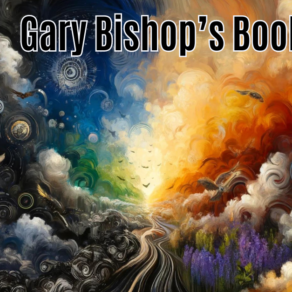I am not usually a fan of books that have excessive attention-grabbing titles such as titles with f-words in them for the simple reason that they are, in my opinion, more commercially oriented. I know that one should not judge books by their cover and that commercialisation is part of the book industry but I just can’t help feeling that.
However, a serious author keen on enlightening, informing, and sharing a deep aesthetic experience with her readers should keep a distance from the excessive use of the mercantile discourse. Gary Bishop seems to fit in the category of authors who excel at the use of such language.
His book Unfu*k Yourself: Get Out of Your Head and into Your Life has made such a huge uproar when it was first published and now his book Stop Doing That Sh*t seems to enjoy the same popularity. Whether it is because of Gary’s crude and naked discourse or his bold and daring perspective to the analysis of social ills that propelled his works to such acclaim is yet to be investigated.
I came across his book Unfu*k Yourself in several book review platforms including the New York Times best sellers but I did not bother purchasing it. I thought it would be just some re-hashed self-help advice couched in a dirty language.
I have no problem with dirty language as long as it is strategically used to communicate something I did not know before or when it is used in creative and unusual ways to entertain or disrupt our normative modes of thinking. I read a summary of Gary’s first book and it did not change my first negative impression about his work. It was definitely a case of confirmation bias.
Perhaps the pre-judgement load I brought to the book blinded any hope of an objective consideration of the content of the book or any of Gary Bishop’s books. However, something draw me to his second book. I thought, I should at least give him (the author) the benefit of the doubt and read his work before I jump to any hasty conclusion.
I purchased the audio version and listened to it from cover to cover. Did I like it? Humm I am still undecided. The only thing I am sure of after listening to it though is that I like Gary’s Scottish accent. In actuality, I love it when authors narrate their own audiobooks. It helps in creating strong bonds between their works and listeners.
The book is short and concise you can read/listen to it in one setting. You might not need to take as many notes for it is full of common sense knowledge. That being said. I must admit that I found some of his ideas really interesting.
For instance his discussion of the concept of ‘saboteur’ which he defined as ” a subconscious conclusion that you made at a definitive point of your life, the kind of indelible mark that stays with you to this day. It will remain with you until the day you die” (p. 67).
Deterministic as this concept of saboteur might seem, Gary, nonetheless, stressed its importance in keeping our lives on track. “The discovery of your unique conclusions” as he stated, “might well be just the shift you need to get and keep your life on track” (p. 140). He further added:
I like to think of my saboteurs as my own little lighthouses in the night. When I encounter them, they’re a warning that I’m about to start drifting into my predictable default life. My self-fulfilling prophecy. When I recognize them, I’m able to pivot. When I use the words “awareness” or “self-aware,” this is what I’m referring to. An up-close and very persona relationship to your own wiring; a relationship that gives you in-the-moment options instead of just fate. (p. 140).
Overall, the book as I stated earlier might not live up to some readers’ expectations, which is normal. No book speaks to the interests of all readers, after all. You may want to give it a listen/read and share with us what you think about it.
Pages cited here are taken from the Apple Book version of Stop Doing That Sh*t.






